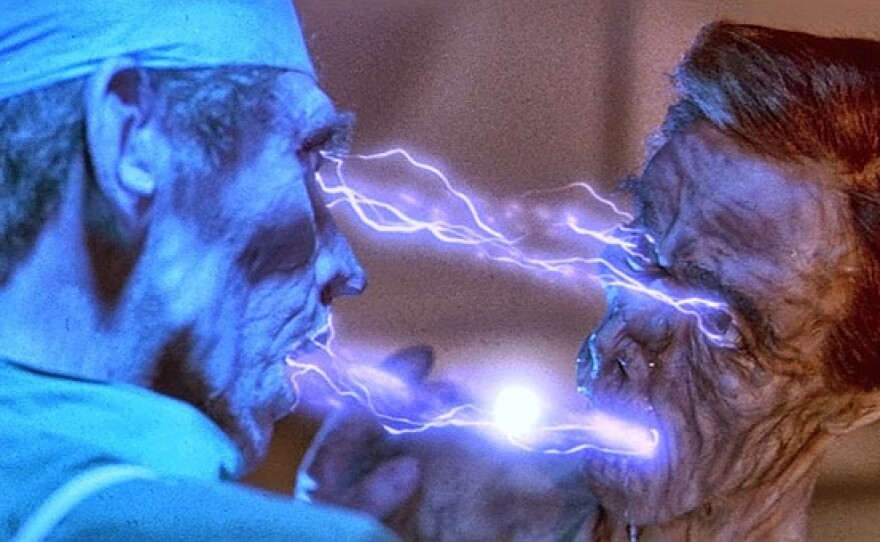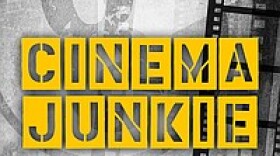Companion viewing
“Not Quite Hollywood: The Wild, Untold Story of Ozploitation” (2008)
“Machete Maidens Unleashed” (2010)
“The Go-Go Boys” (2014)
If you grew up in the 1980s then you probably saw a Cannon Film like “Lifeforce,” “Missing in Action,” or “Death Wish 2.” The new documentary “Electric Boogaloo: The Wild, Untold Story of Cannon Films” (special event screening Thursday at Landmark’s Hillcrest Cinemas) chronicles the crazy history of this indie film company.
In 1979, Israeli cousins Menahem Golan and Yoram Globus purchased Cannon Films and began to make an onslaught of low budget features driven by sex, action and rising or falling stars ranging from Chuck Norris and Jean Claude Van Damme to Charles Bronson.
Mark Hartley’s “Electric Boogaloo: The Wild, Untold Story of Cannon Films” delivers a rapid fire, sensory overload documentary about one of the most prolific and unruly independent film companies ever.
Hartley seems to love filmmaking on the fringes. He previously looked to Australian exploitation (“Not Quite Hollywood”) and Filipino genre filmmaking (“Machete Maidens Unleashed”) for documentary works. He finds a passion and a drive outside of Hollywood that he wants to explore and share so that we, too, will appreciate it.
Cannon Films is the closest he has come to mainstream Hollywood, but as one person points out, Golan and Globus were never embraced by Hollywood because they lacked the proper gloss and manners, and never had time to schmooze over expensive meals and drinks.
Cannon Films was rough around the edges because it just wanted to crank out movies, 43 in its peak year.
Music supervisor Richard Kraft sums up the Cannon style of filmmaking like this:
“Menaham loved the intersection of ideas that should never meet each other. So he assembles like Frankenstein parts from other movies to create disasters.”
In this particular instance, the film in question was “Sahara,” Golan’s “Lawrence of Arabia” epic featuring Brooke Shields in a “Great Race” scenario in the desert. Writer Stephen Tolkin points out that Golan loved movies with a fierce passion but without the patience to nurture a film to be its best.
But Cannon was something of a conundrum. It could churn out schlock like “Hercules” and “Masters of the Universe” but also produce films by art house directors like Barbet Schroeder (“Barfly”), John Cassavetes (“Love Streams”), Jean-Luc Godard (“King Lear”), and Fred Schepisi (“A Cry in the Dark”).
It pioneered preselling a film just based on a title or some poster art and maybe a star name. Golan and Globus were brilliant salesmen and breathtakingly effective at cranking films – some would say crap – out. But their model for making films outside Hollywood and their iconoclastic attitude lay the groundwork for what Bob and Harvey Weinstein would do with Miramax.
The documentary assembles a riveting barrage of anecdotes from assorted colleagues to convey the glory, chaos and legacy of Cannon Films. It’s like sitting in a bar with a bunch of people who all worked for the same now defunct company and comparing tales of an escalating nature.
Hartley notes that he approached Golan and Globus to appear in his film. They declined but then raced to produce their own documentary on Cannon Films called “The Go-Go Boys” (the name applied to the cousins for their energy and approach to the filmmaking process) which they released three month’s before Hartley’s film. Some things never change.
“Electric Boogaloo” will screen once this Thursday night at Landmark’s Hillcrest Cinemas. All I can say is GO! Or maybe I should say GO-GO!
Here is a list of Cannon Films if you want to check out what you may have seen. It is quite diverse and crazy.
Watch the trailer.



